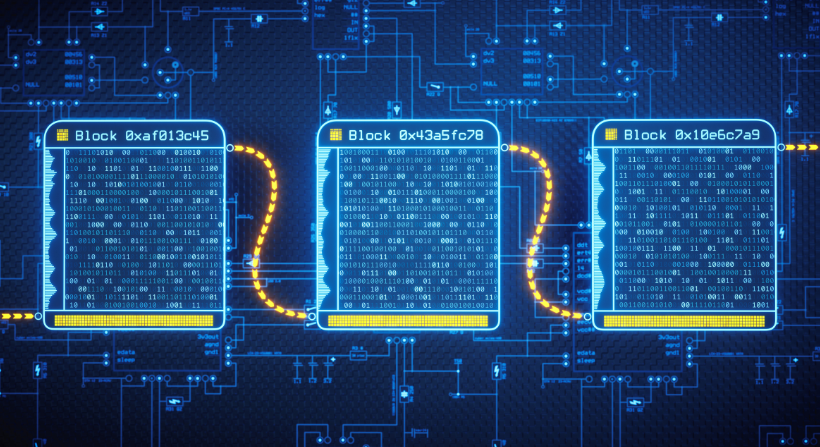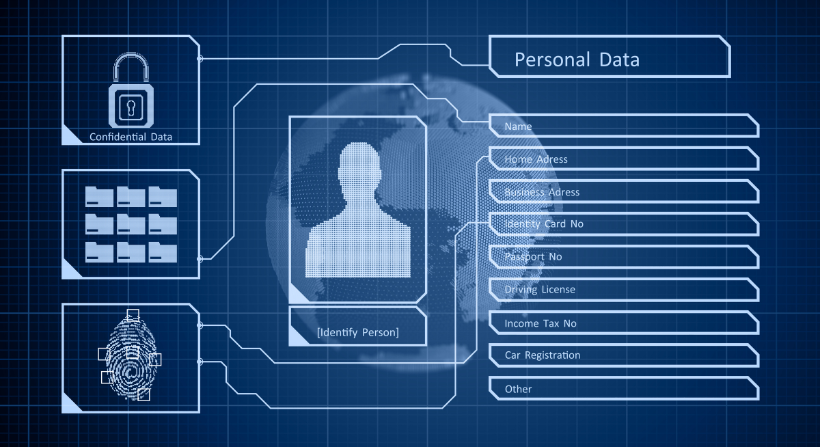and the distribution of digital products.
ATPC Cyber Forum To Focus On Next Generation Cybersecurity And Artificial Intelligence Issues
\ As our world becomes increasingly digital, the question of trust in online identities grows more important. How can we be certain that the people and businesses we interact with online are who they claim to be?
\ Traditional identity systems have struggled with this challenge and often compromise security and user privacy. Now, blockchain technology is stepping in as a game-changer. It offers decentralized user-controlled identity verification that could be the key to establishing trust in the digital economy.
\ Could it be the missing piece for a more secure and trustworthy digital economy? Let’s explore how blockchain could reshape trust in digital identity verification.
Why Identity Verification Matters More Than Ever in a Digital-First Economy?Identity verification is more than just a security measure in the digital economy; it is the foundation of trust. Companies are dealing with the rising pressure of confirming identities to balance privacy and security as online interactions multiply. Legacy systems have also long struggled with this as they rely on centralized databases. This outdated system also led to many security breaches and privacy issues that eroded user trust and left them vulnerable.
\Now, blockchain technology offers a transformative shift by enabling decentralized identity management. It can redefine verification by giving individuals greater control over personal data.
\ In traditional systems, identity data was stored centrally and managed by third parties. Statistics show that 1.1 billion people worldwide do not have a way to claim ownership over their identity. However, blockchain does not buy that and allows users to maintain ownership of their information and share only what is necessary with service providers. This increases security and addresses the growing demand for data privacy.
Role of Blockchain in Revolutionizing Identity VerificationBlockchain technology is changing our approach to identity verification with decentralized and user-controlled systems. It uses distributed ledger technology to allow individuals to own and control their identities directly. This shift reduces the need for third-party intermediaries that enhance privacy and security.
\
\ Decentralized identity (DID) solutions on blockchain offer a “self-sovereign” identity model. These models offer users full control over the data to share and verify specific attributes without disclosing unnecessary information. For example, They can prove their age to access a service without revealing their birthdate. It can also help to confirm employment records without exposing personal contact details.
\ So, does blockchain also help with identity issues we face today, like data insecurity, inaccessibility, and fraudulent identities?
\ Let’s discuss how it helps:
Data Insecurity:Current identity management systems rely on centralized databases. However, these databases are vulnerable to data breaches. Studies show that Personally Identifiable Information is the most commonly targeted data type in cyberattacks. As recent as 2022, approximately 422.1 million individuals were impacted by data breaches, marking a 41.5% increase from 2021. Globally, the average cost of a data breach in 2023 was $4.45 million, a 15% increase over the past three years. In the United States, the average cost was even higher, at $5.09 million. \n \n Blockchain technology uses a decentralized approach to deal with data insecurity. This approach can help reduce single points of failure and enhance security.Blockchain also distributes data across different networks and nodes, making it hard for attackers to alter data.
InaccessibilityAround 850 million people globally lack proof of their identity. Without a valid identity, they can not access basic services like employment and government assistance.
\n Blockchain technology solves this issue of inaccessibility with mobile blockchain-based identity solutions.2.7 billion people worldwide do not own a bank account, while 60% of them have a mobile phone. Mobile-based identity solutions will allow people to create and manage their identities securely.
Fraudulent IdentitiesThe digital identity landscape is fragmented. This means that users can manage multiple identities across various platforms. This fragmentation creates opportunities for fraudsters to exploit weak links between digital and offline identities and create fake profiles. UK Finance Annual Fraud Report 2024 mentions that fraud-related crimes in the UK in 2023 resulted in a loss of around £1.17 billion.
\n These fraudulent identities facilitate scams and contribute to broader societal issues like misinformation. This can erode user trust in democratic institutions.Blockchain can help create standardized and verifiable digital identities linked directly to individuals to reduce the risk of counterfeit interactions.
A Path Toward Digital Inclusion: Empowering Individuals Through Identity VerificationThe transformative power of identity verification is increasingly evident in efforts to foster digital and financial inclusion. One innovative project making strides in this area is unfolding in Austin, Texas. The researchers at the Dell Medical School are developing a platform to help homeless people reclaim their identities.
\
\ Many of these individuals have their physical IDs stolen, which severely hampers their ability to access essential services such as government assistance and medical care. This situation often leads to misdiagnosis at hospitals as healthcare providers lack access to patient medical histories and are forced to start anew during each visit.
\ The Dell Medical team has created a solution to address this challenge. The solution uses smartphones' biometric capabilities, such as thumbprint verification. This platform allows users to verify their identities online and store their information on a decentralized blockchain ledger. This helps ensure their data remains secure and cannot be easily lost or hacked. Crucially, individuals maintain control over their data and grant explicit consent for sharing.
\ While still in development, this project highlights the potential of identity verification systems to drive social benefit and foster greater digital inclusion. Providing individuals with secure, self-managed identities can pave the way for a more inclusive society where access to services is no longer hindered by lack of identification.
Regulatory Challenges in Blockchain Identity VerificationBlockchain identity verification also presents some regulatory challenges. Conventional regulatory structures are ill-suited to handle decentralized systems. Businesses looking to adopt blockchain technology may become uncertain as a result of this discrepancy.
Compliance With Data Privacy LawsData privacy laws, like GDPR, need explicit consent for data processing. Maintaining compliance with privacy laws can become daunting as users control their data in a decentralized model. Regulators must balance the need for security and transparency against the potential overreach that can compromise user privacy.
Lack of Standardized RegulationsThe lack of standardized regulations across jurisdictions can impact the global adoption of blockchain. Companies operating across borders face the challenge of adhering to varying laws and regulations. This can complicate compliance and operational efficiency.
Integration with Legacy SystemsIntegrating with legacy systems poses an additional hurdle. Companies need the latest technological updates to integrate blockchain into their existing infrastructure. High interoperability is also important for easy interactions between traditional databases and decentralized systems. This will help ensure that companies transition without disrupting operations.
\ Regulatory agencies and industry stakeholders must collaborate to address these issues. Establishing flexible frameworks that protect user rights while incorporating blockchain's special capabilities can make digital identity solutions more innovative and trustworthy.
A Look AheadAs we stand on the brink of a new era in identity verification, blockchain technology offers transformative solutions to some of the digital economy's most pressing challenges.
\ Adopting this technology for identity verification is not merely a technological upgrade. It is a shift toward a more trustworthy and inclusive digital economy. The rise of self-sovereign identities and decentralized identifiers will redefine how we perceive and manage personal data.
\ Moving forward, industry leaders need to prioritize collaboration with regulators and tech innovators. By promoting a shared understanding of blockchain's capabilities, we can develop frameworks to support its growth while safeguarding individual privacy. The time for action is now, and the stakes are high. Hence, the rewards for those who adapt are substantial. Together, we can enter a new era of trust and security in the digital world. \n
- Home
- About Us
- Write For Us / Submit Content
- Advertising And Affiliates
- Feeds And Syndication
- Contact Us
- Login
- Privacy
All Rights Reserved. Copyright , Central Coast Communications, Inc.

